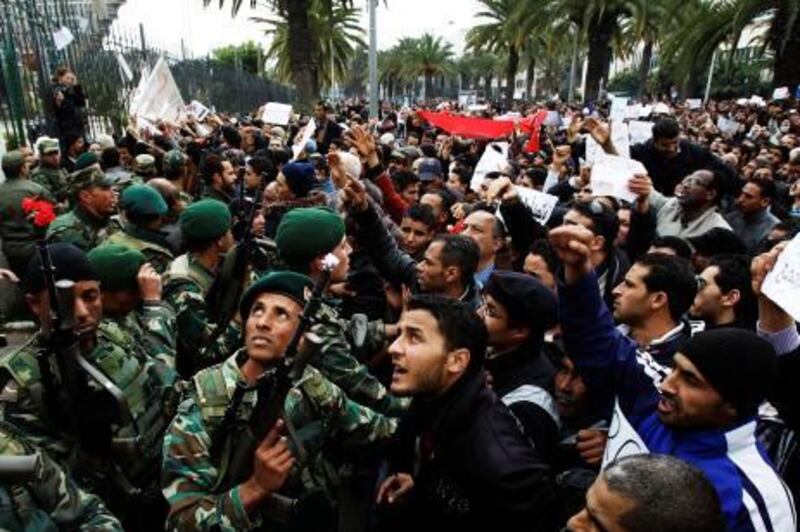ABU DHABI // A leading expert on civil society has warned the Arab Spring has not finished, with elections in Oman in October a potential flashpoint that could trigger fresh protests.
At a conference in Abu Dhabi on the role of the media in Arab societies, Khalid al Safi al Haribi, the managing director of the Omani think tank Tawasul, predicted further demonstrations before the end of the year.
MORE UAE NEWS: Our pick of today's top local news stories
Last Updated: June 15, 2011
Arab Spring has not run its course, expert says Head of Omani think tank tells Abu Dhabi conference that second round will be stronger and more organised, similar to unrest in Tunisia. Read article
Food expert shocked by market hygiene The fruit, vegetable and meat markets in Abu Dhabi have not been abiding by food safety regulations, leaving the door wide open to bacterial contamination. Read article
Footballer sentenced to death for killing neighbour Former member of the UAE national football team is to face a firing squad for his part in a 2008 murder. Read article
Heavens to open up in lunar eclipse The eclipse will blot out the moonlight revealing stars that are not normally visible, from 10.22pm tonight until 2.02am tomorrow. Read article
[ MORE UAE NEWS ]
"In a few months we're going to see a second wave of uprisings and it's going to be more organised and as strong as it happened in Tunisia," Mr al Haribi told the conference on media in the Arab world organised by Zayed University and the German think tank Konrad-Adenauer-Stiftung.
"Even now we're thinking about this as a one-time uprising or revolution and it's not. The reactions of the government and remedies that they've put forth - they're going to run out of solutions in two or three months."
Initially, Mr al Haribi said, expectations would be contained.
"Ramadan is going to cool it down and Eid is going to cool it down a little," he said. "The elections absorb a lot of the political activism and people are expecting parliaments to balance the power with the government, media and business, but that's not going to happen.
"And people will be disappointed again. The society now has become very impatient. It will take just one month after each election for it to start spreading."
Saudi Arabia will face similar if not greater challenges because of the sensitive issue of succession, Mr al Haribi said.
Many analysts had underestimated the scale of the challenge facing the region by focusing on what governments or businesses were doing and failing to take note of citizens' aspirations and grievances, he said.
"It's worse than I thought," Mr al Haribi said. "When Oman cracked down on activists, some were put in jail and they started co-ordinating with each other. So I thought it would nationally start a movement.
"Now activists from Oman and Bahrain are co-ordinating with each other. Activists from all over are getting together."
Most are under the Omani government's radar, he said.
"You probably won't know any of them and that's the beauty of it. They've learnt a lot, have become real activists and more importantly have learnt more about the law."
One Gulf expert at the conference, who declined to give his name, said that if Mr al Haribi were correct, social media could be expected to play an important role.
"Mobilisation will be much easier through social media given the rate of internet penetration here, which is higher than elsewhere in the region," he said.
Activists have also become more self-reliant, Mr al Haribi noted.
"One of our biggest mistakes was this: the activists depended a lot on the media," he said. "They thought the media would stand up for them and help them, but now they've learnt from their mistakes."






